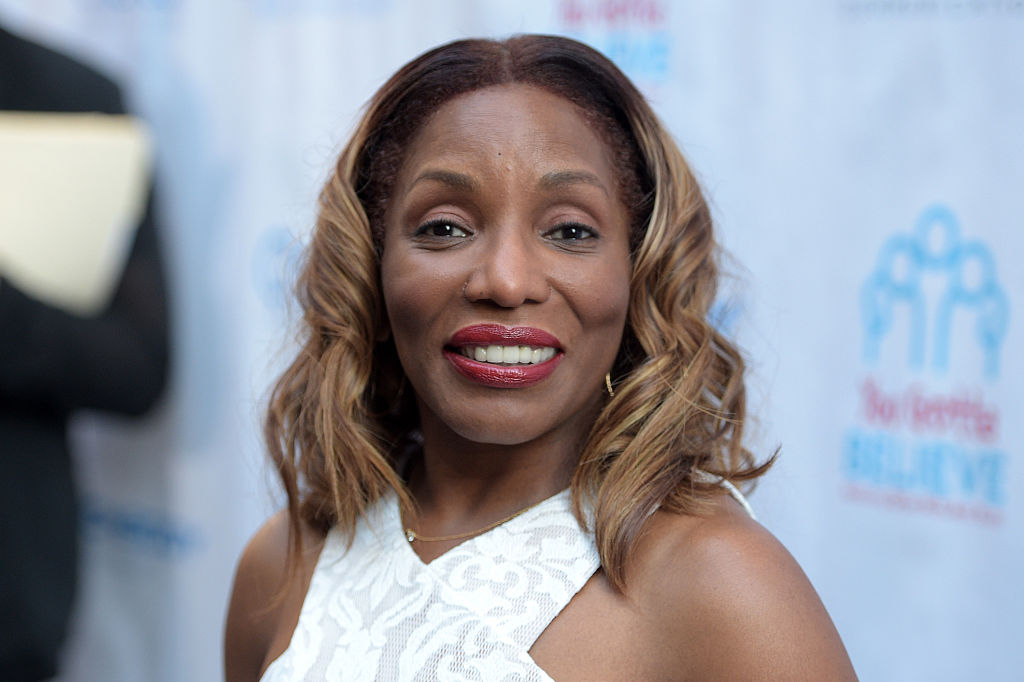Stephanie Mills talks new music, political correctness and the illusion of crossing over
In an exclusive interview with theGrio's April Ryan to celebrate Black Music Month, the legendary singer discusses her new songs and gets candid about why R&B artists should not be looking to go pop.
Stephanie Mills is known for two things: her legendary music and unrivaled vocals, and unapologetically speaking her mind. Since coming on the scene in the 1970s as the lead in the hit Broadway musical, The Wiz, the Grammy-winning singer built her reputation as one of R&B’s most celebrated talents, with hits like “Never Knew Love Like This Before,” “Something in the Way You Make Me Feel,” and “Home.”

As much as she’s revered as a powerhouse vocalist, Mills attacks issues via social media with equal bombast. Whether she’s talking R&B whitewashing and culture appropriation, or staunchly defending her dearly departed friend, the late Michael Jackson, the Brooklyn native has never been one to bite her tongue.
For Black Music Month, Mills talked with theGrio‘s White House Correspondent April Ryan to discuss new songs she’s released to coincide with Juneteenth and the forthcoming anniversary of the 1963 March on Washington.
One of Stephanie Mills’ new songs, “Let’s Do The Right Thing” came from a collaboration with Charles Randolph Wright and Marcus Malone. Paired to Juneteenth holiday, Mills told Ryan what “the right thing” to her is for Black Americans to “come together, sit down, support each other,” adding, “I think that we’re the only race of people that really don’t stick together.”
While disclosing that she once vowed never to record again, Mills churned out the song after observing how the Trump Administration and its policies affected the Black community and the nation at large, while also conveying that past traumas are being repeated.
“I feel like we’ve been traumatized,” Mills said. “I feel like we have been almost back in the 60s, you know, of 50s.”
In addition, Mills also recorded the track “We Must Change,” which is slated to be released adjacent to this year’s 58th anniversary of the 1963 March on Washington, which featured Dr. Martin Luther King Jr.‘s famous “I Have a Dream” speech. Mills is hoping that the change the nation will see involves the new Biden Administration to execute more Black ownership, a total overhaul of law enforcement and an end to voter suppression.
“They must put money back in our school system,” Mills said. “Make sure that our children are learning and have all the equipment that they need to learn. They must do affordable housing. It’s really a shame that at the end of this month, people have to either find the money to stay where they are or they’re going to be evicted.“
When Ryan asked Mills if she expected President Joe Biden and Vice President Kamala Harris to follow through with vows to help the Black community, Mills answered quickly and plainly, “no.”
“I’ll believe it when I see it. I’ll believe it when it’s done. Talk is cheap and we’ve been hearing a lot of talk. And, you know, they all come in, ‘We’re going to do this. We’re going to do that now.’ Talk is cheap. I’ll believe it when it’s done. And I don’t know why it’s so hard to do,” Stephanie Mills told theGrio. “They’re letting the Republicans just run amuck and the Republicans are weak and spineless and evil and hateful.”

Surely, Mills is using her platform to help inspire change but plans to do it with her brand of R&B music, which has been her calling card for over five decades. When it came to fellow Black musicians and artists, Mills pulled no punches with how some of them stop short of speaking up because they’re afraid to lose their viability to white audiences.
“I think that too many of us have fear. That’s why we’re mute,” Mills said of artists who don’t speak up about social issues. “I think we’ve been politically correct so much that we’re not correct. She added, “They say whatever they want to say about us, call us all kinds of names … but you have to stand for something.”
Ryan asked Mills who she was referring to when saying, “them.” Again, Mills made it plain.
“I’m talking about the Black people that will bring R. Kelly down and talk about Kobe [Bryant] when he just passed away, but won’t talk about Harvey Weinstein or Charlie Rose. Those are the people I’m talking about.”
Mills said she resents the notion that Black artists try to cross over from R&B to Pop because they think they’ve “made it when we gone to the white side of things.” An artist like Stephanie Mills, who’s excelled at numerous disciplines and tasted success at every level, insists that the pop music promised land is just a myth for Black artists.
“I’ve seen the politics of everything. I’ve seen how people really operate,” Mills said. “I see how you’re never really accepted. You’re accepted for the time that you are making money. Then you have hit records, you may have a hit Broadway show, a television show, but then after that, ‘OK, next.’ And that’s just the way it is.”

Speaking from personal experience of labels and executives trying to convince her to go Pop, Stephanie Mills’ advice to young Black R&B artists is to be yourself. And if not, once you go Pop, you can’t come back.
“I’ve never wanted to go and be Pop because I wasn’t changing the way I sung. I wasn’t singing these songs that I couldn’t relate to, and I was real clear about that. So, I just want our young entertainers to stay Black, stay who you are. Don’t want to go over there and be Pop. Stay true to your music. That’s very important. Don’t sell out. Don’t sell out, because we don’t want you when you sell out. You keep your ass over there. Don’t come back over here.”
Mills said she is aware that her candor may be a lot to deal with for some, but it’s her truth, and she won’t be changing anytime soon.
“I know that I’m outspoken, but it’s in me. I can’t help it. I’m 64 years old. When you get a certain age, you don’t give a f–k.”
Have you subscribed to theGrio’s “Dear Culture” podcast? Download our newest episodes now!
TheGrio is now on Apple TV, Amazon Fire and Roku. Download theGrio.com today!



